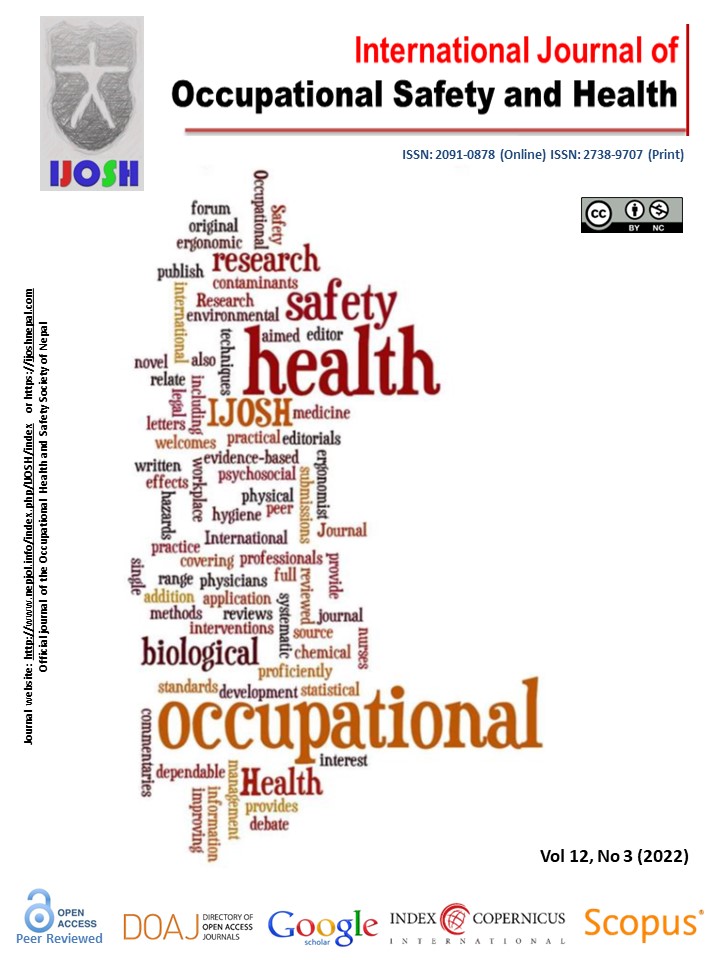Musculoskeletal Symptoms among Plantation Workers in Kerala, India
DOI:
https://doi.org/10.3126/ijosh.v12i3.42304Keywords:
Musculoskeletal Disease, Musculoskeletal pains, Occupational Illnesses, India, Agricultural Workers DiseasesAbstract
Introduction: Musculoskeletal disorder (MSD) is one of the major occupational health problems worldwide. Musculoskeletal symptoms (MSS) can indicate an underlying MSD. This paper assesses the prevalence of MSS among different plantation workers in Kerala, India.
Methods: A cross-sectional survey was conducted from January to February 2021 among 83 rubber tappers, 90 cardamom plantation workers, and 87 tea pluckers (N=260). The Standardized Nordic Questionnaire (SNQ) was used to capture the MSS. MSS was compared across the three types of plantation workers, and the Chi-square test was used to test the significance. The Odds Ratios (OR) and 95% Confidence Intervals (CI) were estimated using binary logistic regression analysis.
Results: The prevalence of MSS (any regions) in the last 12 months among all participants was 87.7% and did not significantly vary between the three groups of workers. In general, the most affected regions were the low back (61%), one or both knees (47%) and shoulders (44%), respectively. Compared to rubber tappers, the odds of MSS in hips/ thighs (adjusted OR=2.38: 95% CI: 1.17-4.84) and wrists (adjusted OR=3.77: 95% CI:1.85-7.69) were significantly high among cardamom plantation workers. But the odds of MSS in elbows (adjusted OR=0.58: 95% CI: 0.31-1.07) and knees (adjusted OR=0.26:95% CI: 0.10-0.63) were low in the tea plantation workers as compared to rubber tappers.
Conclusion: Though there was no variation in the overall prevalence of MSS between the three groups, there was a significant variation between the groups regarding the MSS in different body regions. Using supportive aids according to the nature of work and doing simple stretching exercises during breaks may help to improve the musculoskeletal health of plantation workers.
Downloads
Downloads
Published
How to Cite
Issue
Section
License
Copyright (c) 2022 Anjali Sharma, Jissa Vinoda Thulaseedharan

This work is licensed under a Creative Commons Attribution-NonCommercial 4.0 International License.
This license enables reusers to distribute, remix, adapt, and build upon the material in any medium or format for noncommercial purposes only, and only so long as attribution is given to the creator.





